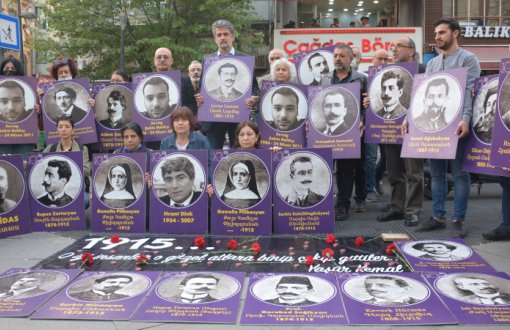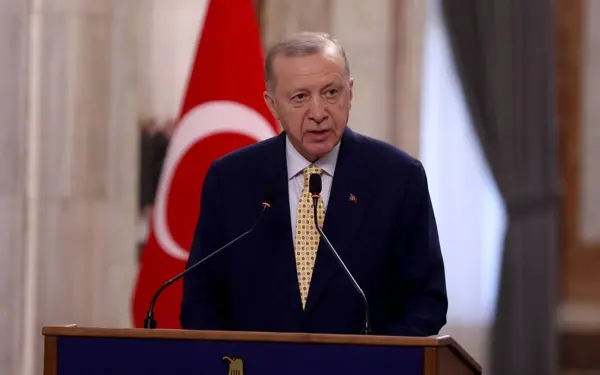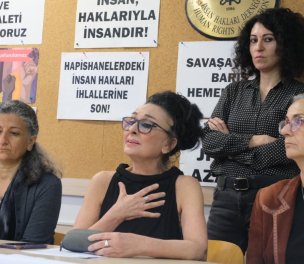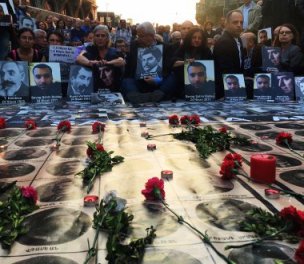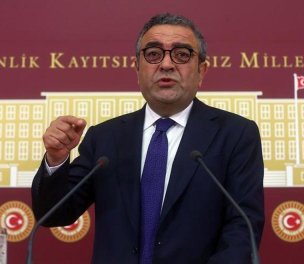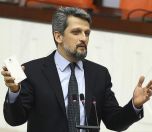Photo: ETHA
Click to read the article in Turkish
Armenians of Turkey held a vigil yesterday (April 24) in İstanbul's Şişli to mark the Armenian Genocide Remembrance Day.
Some 250 Armenian intellectuals, writers and journalists were arrested in the early hours of April 24, 1915 in İstanbul's Tatavla quarter, now called Pangaltı, marking the start of the Armenian Genocide.
Pictures of those who were arrested that night, as well as other Armenians of Turkey who were killed during the genocide and in hate attacks were displayed during the commemoration event in Tatavla.
CLICK - April 24, 1915: We Commemorate Armenian Journalists and Writers
Peoples' Democratic Party (HDP) deputy Garo Paylan, an ethnic Armenian, also attended the event.
The event started with Armenian folk songs. Then, Paylan took the floor, saying that the Armenian people were exiled from their lands and most of them were slaughtered in the process started with the detention of the 250 intellectuals.
The denial of the genocide is as big as a calamity, Paylan noted, adding that crimes left without punishment as a result of the policies of denial were repeated. After the genocide, great crimes were committed against Alevis, Kurds and all the "otherized" communities in the country, he added.
Furthermore, places like schools and streets in where Armenians live are named after the perpetrators of the genocide, he stressed.
"Very close to here, there is the Talat Pasha Primary School, in the middle of a neighborhood densely populated by Armenians. Children of this country study at Talat Pasha schools, walk on Enver Pasha streets, and meet on Cemal Pasha squares.
"This is a calamity as big as the genocide. This is why the climate of genocide continues. We want the Turkish, Kurdish and Armenian peoples to make peace with justice."
Before and after the genocide
After Paylan's speech, Ferda Önen read out a statement in the name of the people of Tatavla.
"The ancient people who lived in these lands for thousands of years were taken on a journey of death by those who came to these lands thousands of years later," she said.
"Those who wanted to create a uniform Muslim-Turkish nation-state instead of a multi-identity, multi-religion and multicultural country regarded Christians whom they had lived together in thie land for hundreds of years as a threat." (EMK/VK)




